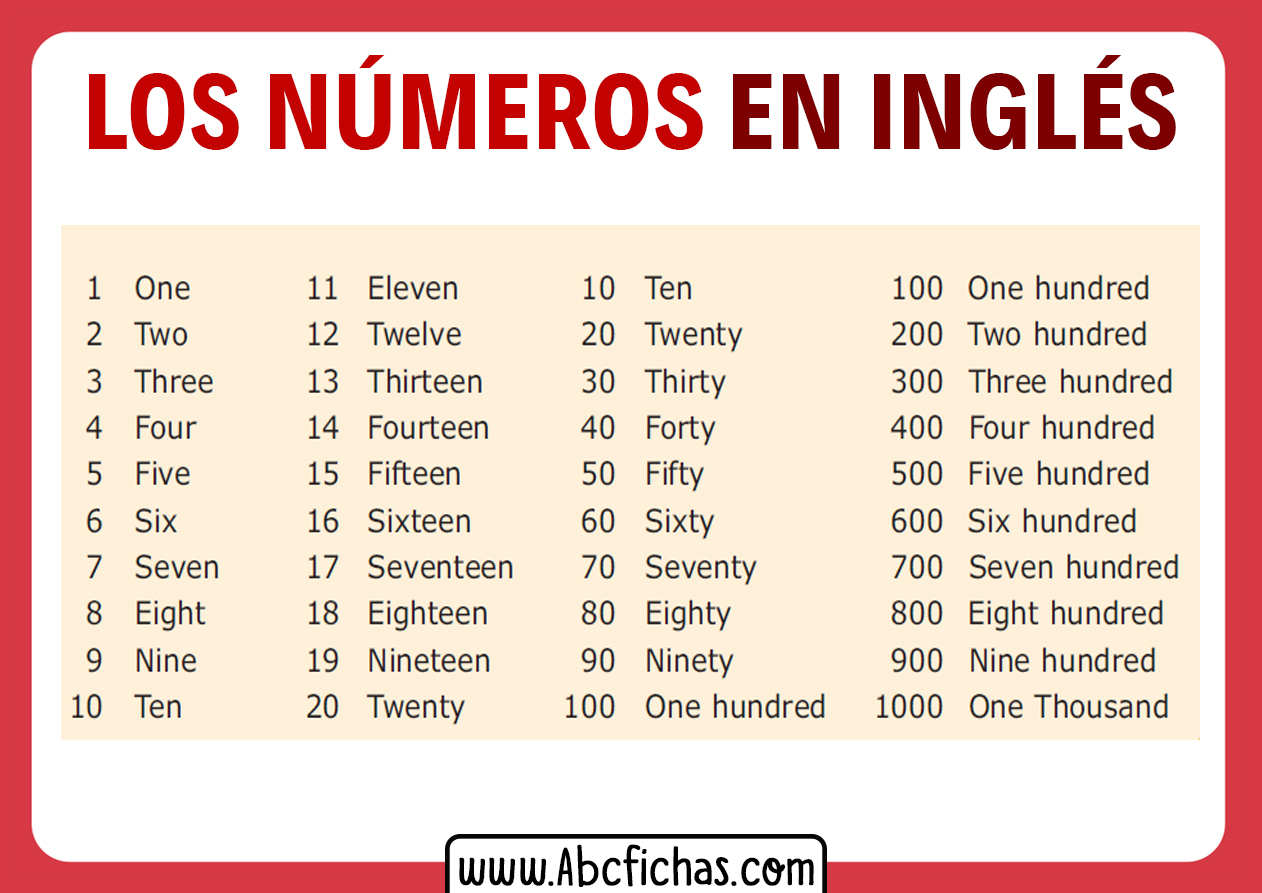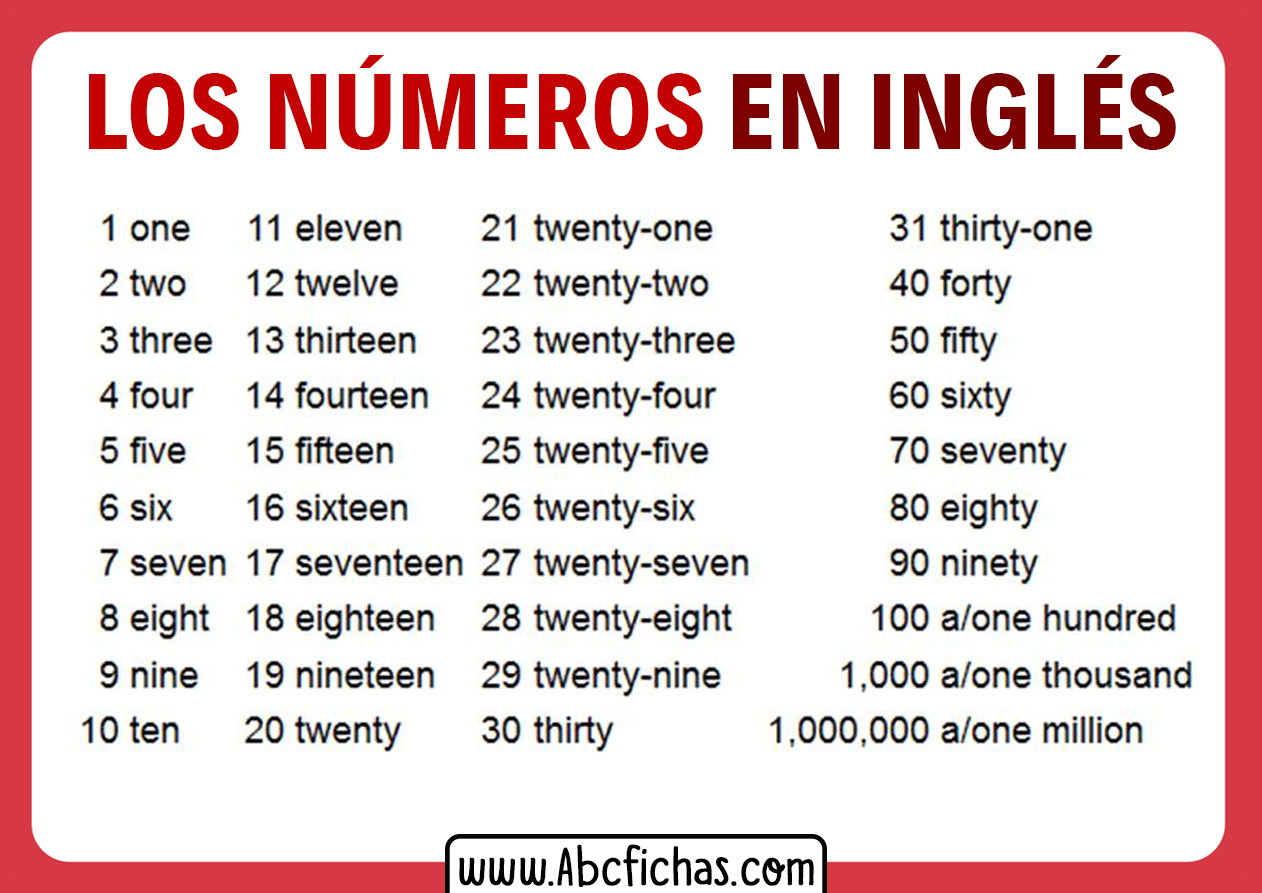Have you ever found yourself struggling to remember how to say a number in English, especially when it gets into the hundreds? It’s a common challenge, but fear not! This comprehensive guide will equip you with the knowledge to confidently count from one to one thousand in English.

Image: www.aiophotoz.com
Understanding how numbers are formed in English is crucial for effective communication, whether it’s for everyday conversations, academic purposes, or professional interactions. From simple counting to complex calculations, mastering numerical expressions is essential. So let’s delve into the fascinating world of numbers and explore their intricacies in English.
The Foundations: Numbers 1 to 99
Let’s begin with the basics. The English language has specific words for numbers from one to nine: one, two, three, four, five, six, seven, eight, nine. For ten, we have the word “ten.” Now, to form numbers from eleven to nineteen, we simply combine “ten” with the relevant single-digit number: eleven, twelve, thirteen, fourteen, and so on. This pattern continues until we reach “nineteen.”
For numbers 20 to 90, we follow a slightly different rule: we combine the base number (twenty, thirty, etc.) with the single-digit number: twenty-one, thirty-two, sixty-five, and so on. This creates a consistent system for expressing numbers in this range.
The Hundreds: Unveiling the Third Dimension
Numbers from 100 to 999 represent a new level of complexity. We introduce the word “hundred” and combine it with the relevant single-digit number followed by “and.” For example, 100 is “one hundred,” 200 is “two hundred,” 300 is “three hundred,” and so on. For numbers between these hundreds, we add the “and” followed by the number from 1 to 99. Consider these examples:
- 150: One hundred and fifty
- 237: Two hundred and thirty-seven
- 899: Eight hundred and ninety-nine
The Magic of Thousand: Reaching a Milestone
Once we reach the number 1000, we introduce the word “thousand.” To form numbers beyond 1000, we simply state the number of thousands followed by the remaining digits. For example, 1250 is “one thousand, two hundred and fifty,” 2500 is “two thousand, five hundred,” and so on.

Image: www.abcfichas.com
Real-World Applications: Numbers in Action
The ability to count and express numbers in English is fundamental to countless everyday activities. Imagine trying to:
- Shop for groceries: You need to know the price of items and how many items you want.
- Plan a trip: You need to understand distances, travel times, and flight numbers.
- Manage your finances: You need to track expenses, income, and bank balances.
- Engage in sports: You need to understand scores, times, and statistics.
- Read a book: You need to comprehend page numbers and dates.
These examples highlight how deeply intertwined numbers are with our daily lives. Proficiency in English numeral expression empowers us to navigate these activities with confidence.
Beyond the Basics: Understanding Place Value
To achieve true mastery of numbers in English, we need to understand the concept of place value. Each digit in a number represents a specific power of ten. For example, in the number 235, the digit “2” represents two hundreds (2 x 100), the digit “3” represents three tens (3 x 10), and the digit “5” represents five ones (5 x 1). This understanding allows us to translate any number into its corresponding English equivalent and vice versa.
Special Cases and Irregularities
While there’s a general pattern for English number formation, there are some exceptions that require attention. For instance, the numbers 11 to 19 follow a unique pattern, as mentioned earlier. Additionally, the teens (13, 15, 17, 18) have irregular spellings. These exceptions are important to remember and practice.
The Importance of Practice
As with any skill, mastering numbers in English requires dedicated practice. Repetition and exposure to different numerical contexts are crucial for solidifying understanding. You can practice by counting objects around you, playing number games, or working through exercises in workbooks or online platforms.
Num En Ingles Del 1 Al 1000
Conclusion: Embracing the Power of Numbers
Numbers are an integral part of our lives, and understanding how to express them in English is essential for effective communication and problem-solving. From basic counting to complex calculations, mastering the English language’s numerical system grants us a powerful tool for navigating the world around us. Start practicing today and unlock the power of numbers in English!






